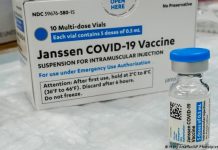Loneliness is considered a growing public health threat in the United States. Former surgeon general Dr. Vivek Murthy has even described loneliness as an “epidemic” plaguing the country. On Tuesday, new research identified “alarmingly high” levels of loneliness in a group of adults, and suggested that loneliness may peak during certain age periods.
The study, conducted by researchers from the University of California San Diego School of Medicine and published in the journal International Psychogeriatrics, analyzed a group of 340 adults living in San Diego, California. They ranged in age from 27 to 101.
Researchers assessed the participants using a series of tests and found that 76% percent had moderate-high levels of loneliness.
That high rate differs from previous research, which has suggested the prevalence of loneliness in the US general population ranges from 17% to 57%, according to a UC San Diego statement about the study.
“This is noteworthy because the participants in this study were not considered to be at high risk for moderate to severe loneliness,” study author Dr. Dilip Jeste said in the statement. “Though there were clear demographic limitations to the group, these participants were, generally speaking, regular people.”
The study also found that loneliness peaked during the late 20s, the mid-50s, and the late 80s, and that it was linked with worse mental health overall.
Experts have already known that loneliness can have a major impact on mental and physical health. Some studies suggest that it can disrupt sleep, increase stress, and weaken a person’ s immune system. Research has even found that loneliness has such an impact on death rates that it could be considered a public health threat on par with smoking, as Business Insider previously reported.
“Loneliness seems to be associated with everything bad,” study author Dr. Ellen Lee said in the statement. “It’s linked to poor mental health, substance abuse, cognitive impairment, and worse physical health, including malnutrition, hypertension and disrupted sleep.”
The authors added that the apparent age-related peaks in loneliness warrant further study.
“There are more gaps in knowledge than there are answers at the moment,” Jeste said in the statement. “But these findings suggest we need to think about loneliness differently.”













